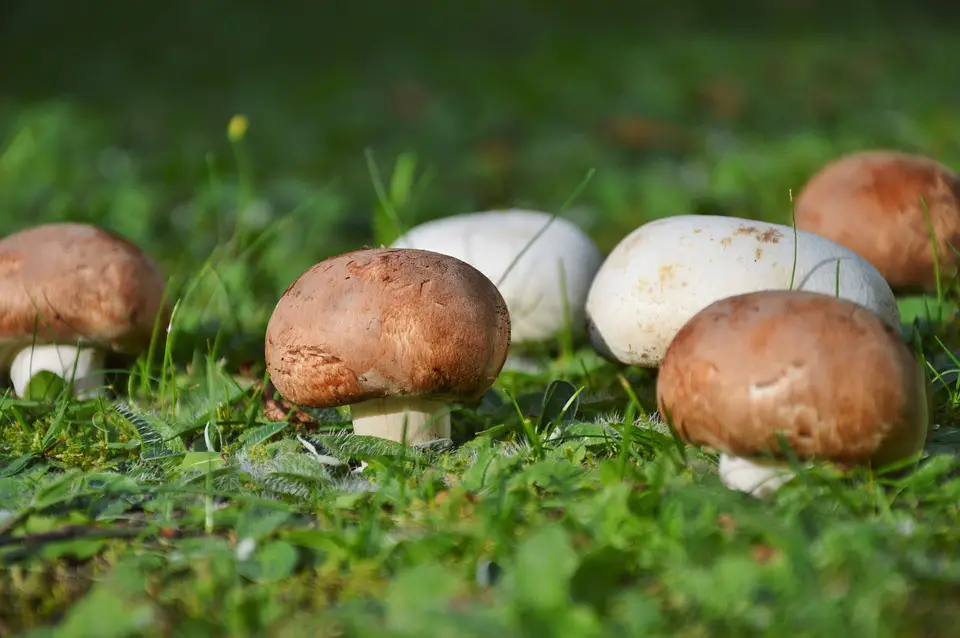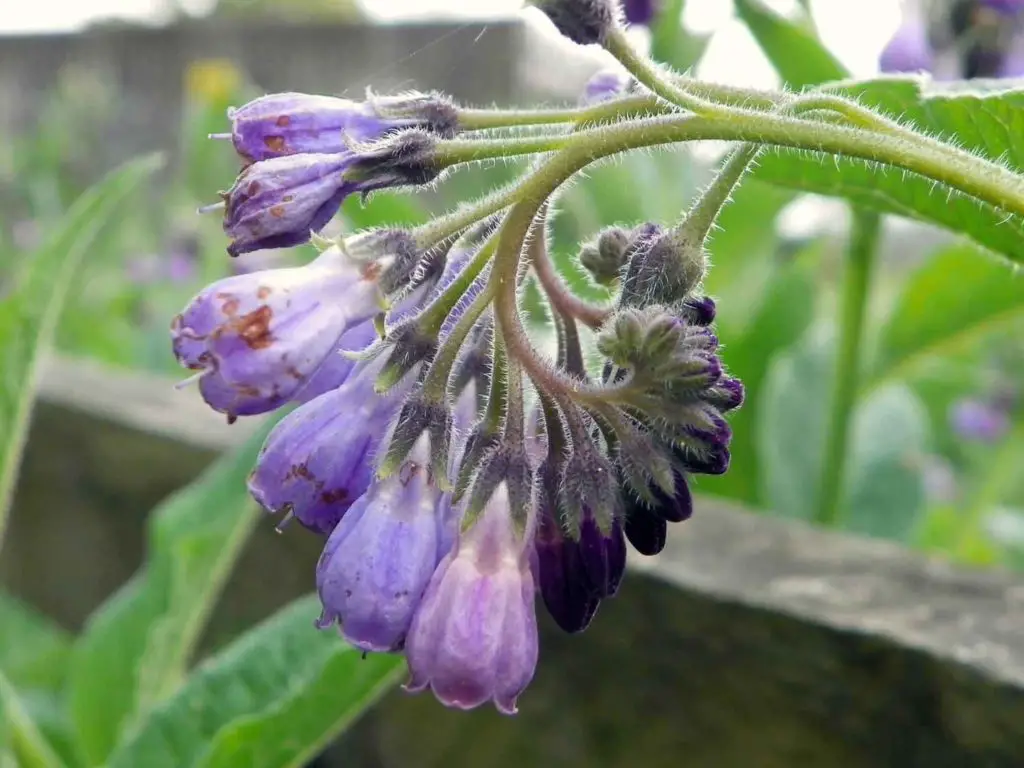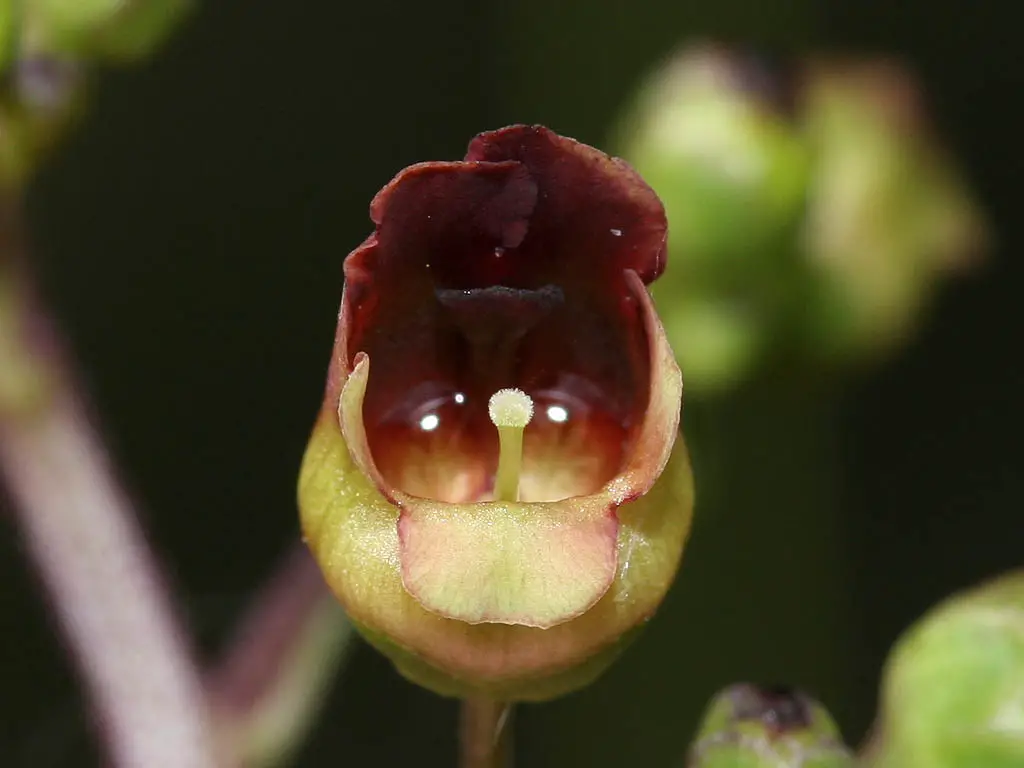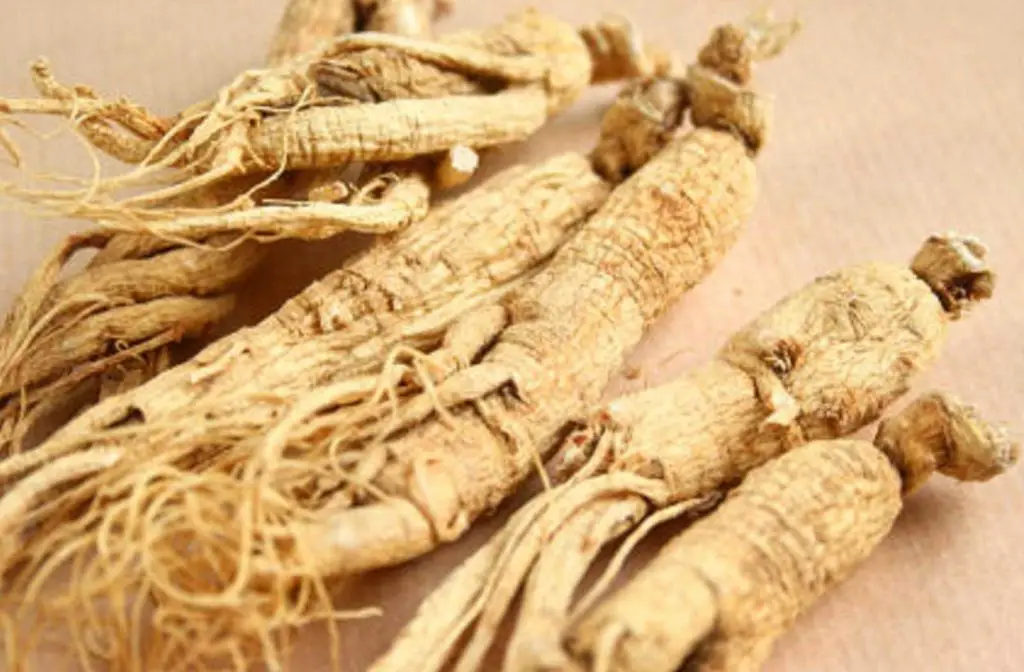What is Agaricus blazei?
Agaricus blazei is the scientific name of a medicinal mushroom which is also referred to as the God’s mushroom almond mushroom, mushroom of the sun, himematsutake, royal sun agaricus, jisongrong, and mushroom of life. This species is also synonymous with several other scientific names, including Agaricus subrufescens, Agaricus brasiliensis, and Agaricus rufotegulis. Some of those scientific names also describe other species of mushroom which can occasionally cause confusion. The mushroom was originally discovered and described from North America and Canada, but it has since been discovered in many areas spanning the northern hemisphere, and it has also been found in Brazil and Australia in the southern hemisphere.
The mushroom varies in size, ranging anywhere from 2-7 inches in diameter, and it only grows a few inches from the ground at most. The cap itself can also vary in color, appearing as a dull gray to a deep reddish brown. Many say that the mushroom has a very pleasing flavor and scent that is reminiscent of almonds.

Agaricus blazei has been popular for many centuries for its medicinal uses, but it has been of more recent interest in the last few decades for its ability to stimulate the immune system. Most cultural use stems from reports in Brazil, where people who commonly eat the mushroom as a regular dietary staple are said to suffer from fewer diseases that those who do not. It is even used for modern oncology cases, and many studies show the effects that Agaricus blazei has on different kinds of cancer.
Agaricus blazei Mushroom Benefits
Lung Cancer
Thus far, two studies show that Agaricus blazei has potential benefits for those suffering from lung cancer. In 2004 a group studied the anti-tumor and anti-metastatic effects of the mushroom on mice with Lewis lung carcinoma. Doses of 30, 100 and 300 mg/kg were administered to the mice, and all three groups of mice experienced inhibited tumor growth and metastasis. The second study conducted in 2005, also on mice, showed the same results, and the researchers determined that beta-glucans were responsible for the improvement. Following those results, the researchers suggested that supplementation with beta-glucans may be beneficial for cancer patients who are at risk for metastasis.
Breast Cancer
In 2010, a study evaluated the effects of a popular supplement, MycoPhyto® Complex, on human breast cancer cells in an in vitro study. That supplement contains Agaricus blazei as well as several other herbal ingredients. The supplement did show to inhibit cell proliferation in breast cancer cells, but more studies still need to be conducted to determine if Agaricus blazei is the only active ingredient in the supplement.
Ovarian Cancer
The same study conducted in 2005 that determined that Agaricus blazei may cause improvement in lung cancer (see section above) has also been used to support its use for ovarian cancer. In both in vitro and in vivo models, beta-glucans (which are present in Agaricus blazei) inhibited cell proliferation in human ovarian cancer cells.

Sarcoma
As previously described, Agaricus blazei can have significant effects on lung, breast, and ovarian cancers, and another study conducted in 2001 also shows that it can benefit those suffering from sarcoma. In that study, mice bearing sarcoma tumors were orally administered a lipid fractionation treatment developed from Agaricus blazei. After 20 days of treatment, the size of the tumors decreased and there were no side effects observed. The compound isolated from the mushrooms was identified as ergosterol, and after further study, it was determined that ergosterol inhibits the growth of tumors by inhibiting the development of new blood vessels within the tumors.
Diabetes
Several studies have been conducted on the effects of Agaricus blazei on diabetes. In 2005, a study was conducted that isolated beta-glucans and oligosaccharides from the mushroom, and those compounds were then administered to mice. After administration, the mice showed an anti-hyperglycemic, anti-hypertriglyceridemic, anti-hypercholesterolemic, and anti-arteriosclerotic activity, and together those effects show an over-all anti-diabetic effect. In 2007, a human study was conducted with 72 subjects who were all diagnosed with Type-2 diabetes. The subjects were either given a mushroom supplement or a placebo to take in addition to their regular diabetes treatment. At the end of the study period, those given the mushroom supplement showed to have improved insulin resistance compared to the placebo group.
Candida
Many suggest eating mushrooms can help prevent Candida overgrowth, or yeast infections, and some people suggest that Agaricus blazei, in particular, can help if you frequently suffer from yeast infections. It was not until 2017 that the first in vitro study was conducted to determine how Agaricus blazei interacts with Candida albicans cells. After an acid-treated polysaccharide-rich fraction of the mushroom was administered, white blood cells were shown to have an increased ability to adhere to the yeast cells. This study suggests that Agaricus blazei can boost the immune system, allowing it to fight off a yeast infection on its own. However, more research needs to be conducted on animal models to confirm these effects.
Testosterone
Agaricus blazei has not been studied for its effect on testosterone, but its close relative Agaricus bisporus (the white button mushroom) has. In 2008, a study showed that A. bisporus lowered testosterone levels which in turn had a positive effect on testosterone-linked tumors. While this effect does need to be confirmed in A. blazei, it is possible it also has a similar effect since they are close relatives.
Immune System
A myriad of studies have been conducted on Agaricus blazei that show it can boost the immune system, particularly (but not limited to) how it effects the immune system regarding cancer. From the 1980s to today, several dozen studies have revealed the effects the mushroom has on the immune system and the mechanisms by which it works. For example, discoveries from 1989, 1994, and 2001 show that Agaricus blazei is rich in compounds that stimulate macrophages, the first line of defense against tumors and infections. Additionally, studies conducted in 1980, 1987, 1994, and 2000 show that the mushroom is rich in glucans (especially beta-glucans) that fight against infectious diseases like E. coli and Streptococcus pneumoniae.
Vaccines
Two reports show that Agaricus blazei can improve the efficacy of vaccines and immunizations. In 2004, mice were either solely given a DNA-vaccine for hepatitis B or were given the vaccine and an Agaricus blazei extract. While the first group of mice still benefitted from the stand-alone vaccine, the mice that were also given the extract had higher numbers of antibodies and T-cells. Another study conducted in 2006 showed that it also improved the effects of another DNA-vaccine for foot-and-mouth disease, again by increasing antibody and T-cell counts. Both studies suggest that supplementation with Agaricus blazei can make DNA-vaccines more effective.

Agaricus blazei Mushroom Dosage
Scientific research has only suggested a dosage of 500 mg orally in extract form three times per day for the treatment of diabetes. Research has not suggested dosages for other treatments, but supplement manufacturers and tradition dictate that a similar dosage can be taken to provide immune support and act as a preventative treatment for yeast infections.
It is not well known how much to take to compliment cancer treatments. However, many people find that regular supplementation as directed by the particular supplement manufacturer to be helpful. Depending on the type and severity of cancer, your doctor may recommend a stronger or weaker dosage.
Although Agaricus blazei can be consumed in many forms, ranging from tinctures to oils to coffee and tea. It is suggested you consume a dual extract (capsuled or powdered) measured by beta-d-glucans. I would personally suggest you also make sure the mushroom is made of fruiting bodies but the evidence is not 100% clear on that yet.
Agaricus blazei Mushroom Side Effects, Safety, Dangers and Warnings
Do not use Agaricus blazei alone as a cancer treatment if you have already been diagnosed with cancer by a doctor. Agaricus blazei is meant to compliment cancer treatment, but not to be used as a sole treatment. Consult with a doctor before using if you have cancer.
Most people do not suffer adverse effects from Agaricus blazei, as reported by a 2011 study conducted over 6 months. However, 9% of patients from this study did report mild to moderate side effects that were predominantly digestive in nature (e.g. nausea and diarrhea). That study suggests that supplementation with Agaricus blazei is generally safe, excluding possible allergic reactions.
A study conducted in 2006 reported three cases of people who were taking Agaricus blazei extract to compliment cancer treatment who suffered severe hepatic damage, and two of the three died from fulminant hepatitis. Liver function did show to improve after halting extract supplementation. Extreme side effects like this are rare, however, and Agaricus blazei is considered to be safe by most doctors.
The effects on women who are pregnant or breastfeeding is unknown. Use caution and avoid in these instances.
Because of its effect on blood sugar, it may interact with diabetes medications. If you have diabetes, consult with a doctor before using Agaricus blazei.
It is advised not to take Agaricus blazei at least two weeks before a scheduled surgery.
Buying the Best Agaricus blazei Mushroom Supplement
Why a Dual Extract?
Always select a mushroom supplement that is labeled as a dual extract. The dual extraction process releases both fat-soluble and water-soluble compounds, and this allows for more nutritional compounds to be available for the body to absorb. Eating or drinking mushroom products that are not dual-extracts results in you not absorbing the water-soluble compounds, so you are not getting all the possible medical properties from the mushroom that you could.
A dual-extract is created in a two-step process where the mushrooms are boiled for an extended amount of time and then extracted in alcohol. This process makes all the nutritional and medicinal properties readily available for your body to absorb. If you do not use a dual extract you will not be getting the beneficial beta-d-glucans as they wont be bio-available.
Beta D Glucans vs Polysaccharides
Supplements may be labeled as having a high number of polysaccharides, and this initially may seem as a good indicator quality. However, polysaccharides are just carbohydrates, and carbohydrates are not indicators of quality.
Beta-glucans are much better indicators of quality, so when selecting a supplement, look for the amount of beta-glucans contained in the supplement. Beta-glucans are also a type of polysaccharide, but unlike carbohydrates, they have medicinal qualities that have been tested in many scientific studies.

References:
https://www.ncbi.nlm.nih.gov/pubmed/18782264
https://www.ncbi.nlm.nih.gov/pmc/articles/PMC3168293/
https://www.ncbi.nlm.nih.gov/pmc/articles/PMC2249742/
https://www.ncbi.nlm.nih.gov/pubmed/22637937
https://www.ncbi.nlm.nih.gov/pmc/articles/PMC4774976/




